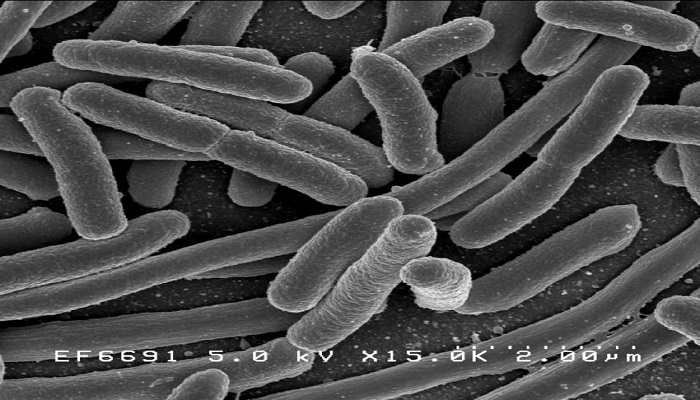Humans are colonized with thousands of bacterial strains. Researchers are now focused on genetically modifying such bacteria like E. Coli to enhance their intrinsic therapeutic properties.
One goal is to develop smart microbes that release therapeutic payloads at sites of disease, thus maintaining therapeutic efficacy while limiting many of the side effects that can be associated with the systemic administration of conventional drugs.
Investigators at Massachusetts General Hospital (MGH), a founding member of Mass General Brigham (MGB), have engineered a strain of the probiotic Escherichia coli (E. coli), Nissle 1917, to secrete proteins of therapeutic value into its surroundings.
When engineered to secrete an antibody that blocks inflammation, this “smart microbe”, was as efficacious as a systemically delivered antibody, the mainstay of current therapy, in limiting the development of colitis in a mouse model of inflammatory bowel disease (IBD).
One of the challenges of enhancing the therapeutic capabilities of this beneficial microbe was to enable it to secrete proteins into its surroundings. E. coli are surrounded by an outer envelope across which few proteins are transported.
“Many pathogenic relatives of E. coli directly transport bacterial proteins across their outer envelope into human cells using a syringe-like machine,” says senior author Cammie F. Lesser, MD, PhD, a physician-scientist in the Infectious Disease Division at MGH, associate professor of Medicine at Harvard Medical School and d’Arbeloff MGH Research Scholar.
Lesser’s lab at MGH has been studying these complex protein secretion systems for more than two decades with the ultimate goal of reengineering them as drug delivery systems.
Using knowledge gained from fundamental-based research, the lab introduced a version of this secretion machine into beneficial E. coli and modified it to secrete proteins into its surroundings.
They also engineered a variety of proteins of therapeutic value to be recognized as secreted proteins of this machine. The resulting programmable platform is referred to as PROT3EcT for probiotic type III secretion E. coli.
As proof of the potential therapeutic value of PROT3EcT, Lesser and her colleagues tested the engineered E. coli in a mouse model of inflammatory bowel disease.
PROT3EcT that was engineered to secrete nanobodies that bind to and inhibit tumor necrosis factor (TNF) alpha, a pro-inflammatory cytokine, was as effective in blocking the development of inflammation in the intestines of mice as an injected monoclonal antibody that targets the same cytokine.
Monoclonal antibodies that neutralize TNF alpha result in general suppression of the immune system, which can have unintended effects.
“Patients administered these drugs systemically are at risk for developing life-threatening infections as well as lymphoma,” says Lesser. “By using engineered bacteria, it should be possible to deliver these anti-inflammatory antibodies and limit immunosuppression directly to where inflammation is present.”
Lesser and her colleagues are now working on engineering bacterial strains that will secrete therapeutic proteins in response to specific conditions, such as when inflammation begins developing in the gut.
Engineered E. coli can also be outfitted to secrete antibodies that block toxins released by harmful strains of bacteria. Lesser’s team is investigating the microbe’s potential to treat intestinal infections such as Clostridiodes difficile (C. diff), colitis, and other toxin-driven infections.
Co-authors include Jason P. Lynch, Coral Gonzalez-Prieto, Analise Z. Reeves, John M. Leong, Charles B. Shoemaker, and Wendy S. Garrett.
This study was supported by the National Institutions of Health, the Kenneth Rainin Foundation, the Crohn’s & Colitis Foundation, and a Brit d’Arbeloff research scholar award.
About the Massachusetts General Hospital
Massachusetts General Hospital, founded in 1811, is the original and largest teaching hospital of Harvard Medical School. The Mass General Research Institute conducts the largest hospital-based research program in the nation, with annual research operations of more than $1 billion and comprises more than 9,500 researchers working across more than 30 institutes, centers and departments. In July 2022, Mass General was named #8 in the U.S. News & World Report list of “America’s Best Hospitals.” MGH is a founding member of the Mass General Brigham healthcare system.
Source: Massachusetts General Hospital


